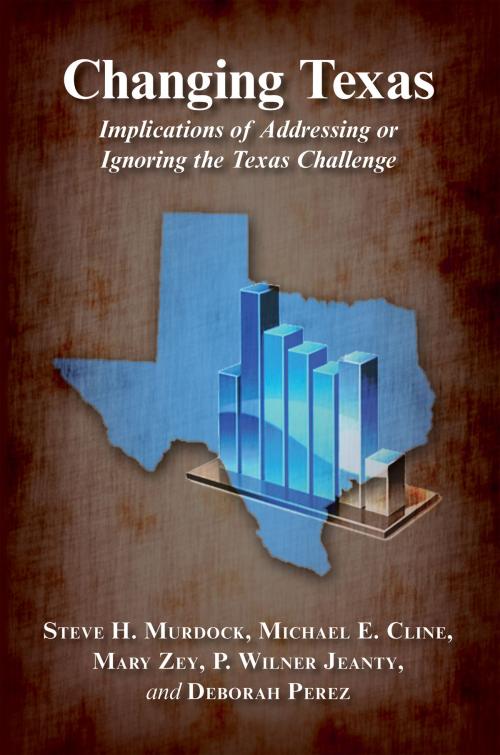Changing Texas
Implications of Addressing or Ignoring the Texas Challenge
Nonfiction, Social & Cultural Studies, Social Science, Demography, Cultural Studies, Emigration & Immigration, History, Americas, United States| Author: | Steve H. Murdock, Michael E. Cline, Mary A. Zey, P. Wilner Jeanty, Deborah Perez | ISBN: | 9781623491666 |
| Publisher: | Texas A&M University Press | Publication: | March 25, 2014 |
| Imprint: | Texas A&M University Press | Language: | English |
| Author: | Steve H. Murdock, Michael E. Cline, Mary A. Zey, P. Wilner Jeanty, Deborah Perez |
| ISBN: | 9781623491666 |
| Publisher: | Texas A&M University Press |
| Publication: | March 25, 2014 |
| Imprint: | Texas A&M University Press |
| Language: | English |
Drawing on nearly thirty years of prior analyses of growth, aging, and diversity in Texas populations and households, the authors of Changing Texas: Implications of Addressing or Ignoring the Texas Challenge examine key issues related to future Texas population change and its socioeconomic implications. Current interpretation of data indicates that, in the absence of any change in the socioeconomic conditions associated with the demographic characteristics of the fastest growing populations, Texas will become poorer and less competitive in the future. However, the authors delineate how such a future can be altered so that the “Texas Challenge” becomes a Texas advantage, leading to a more prosperous future for all Texans.
Presenting extensive data and projections for the period through 2050, Changing Texas permits an educated preview of Texas at the middle of the twenty-first century. Discussing in detail the implications of population-related change and examining how the state could alter those outcomes through public policy, Changing Texas offers important insights for the implications of Texas’ changing demographics for educational infrastructure, income and poverty, unemployment, healthcare needs, business activity, public funding, and many other topics important to the state, its leaders, and its people. Perhaps most importantly, Changing Texas shows how objective information, appropriately analyzed, can inform governmental and private-sector policies that will have important implications for the future of Texas.
Drawing on nearly thirty years of prior analyses of growth, aging, and diversity in Texas populations and households, the authors of Changing Texas: Implications of Addressing or Ignoring the Texas Challenge examine key issues related to future Texas population change and its socioeconomic implications. Current interpretation of data indicates that, in the absence of any change in the socioeconomic conditions associated with the demographic characteristics of the fastest growing populations, Texas will become poorer and less competitive in the future. However, the authors delineate how such a future can be altered so that the “Texas Challenge” becomes a Texas advantage, leading to a more prosperous future for all Texans.
Presenting extensive data and projections for the period through 2050, Changing Texas permits an educated preview of Texas at the middle of the twenty-first century. Discussing in detail the implications of population-related change and examining how the state could alter those outcomes through public policy, Changing Texas offers important insights for the implications of Texas’ changing demographics for educational infrastructure, income and poverty, unemployment, healthcare needs, business activity, public funding, and many other topics important to the state, its leaders, and its people. Perhaps most importantly, Changing Texas shows how objective information, appropriately analyzed, can inform governmental and private-sector policies that will have important implications for the future of Texas.















